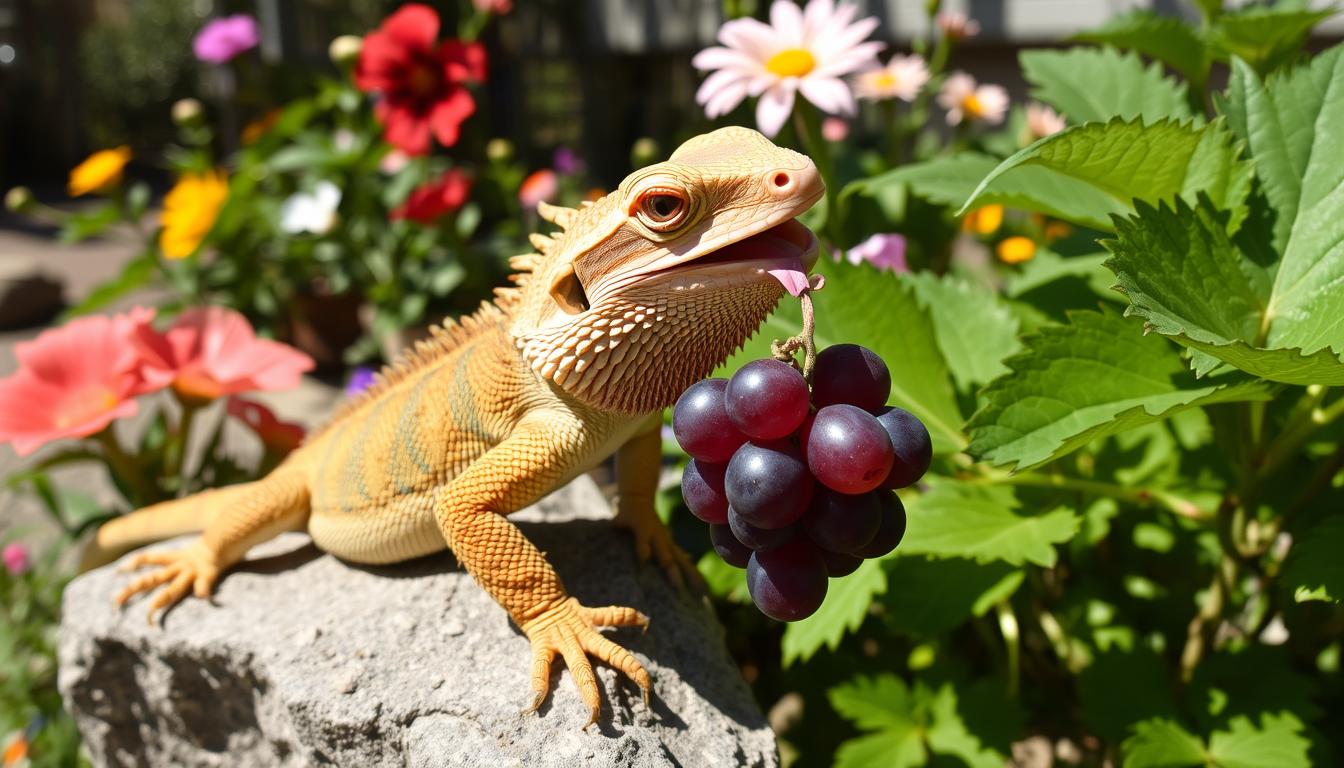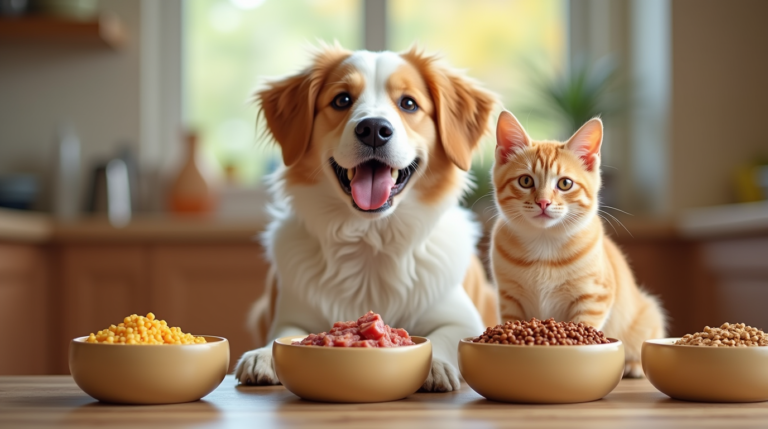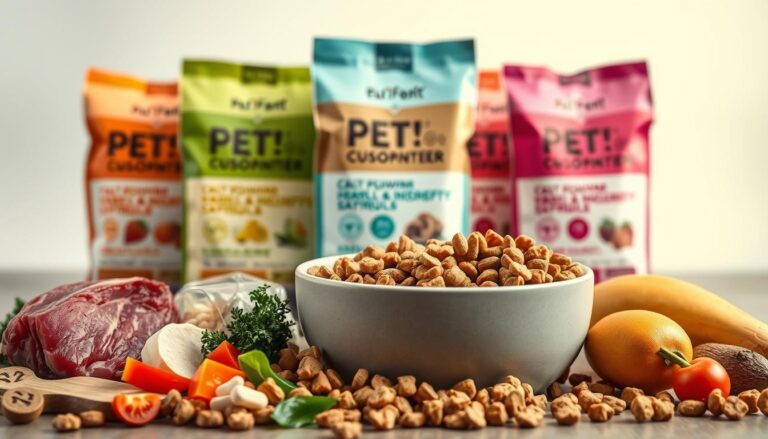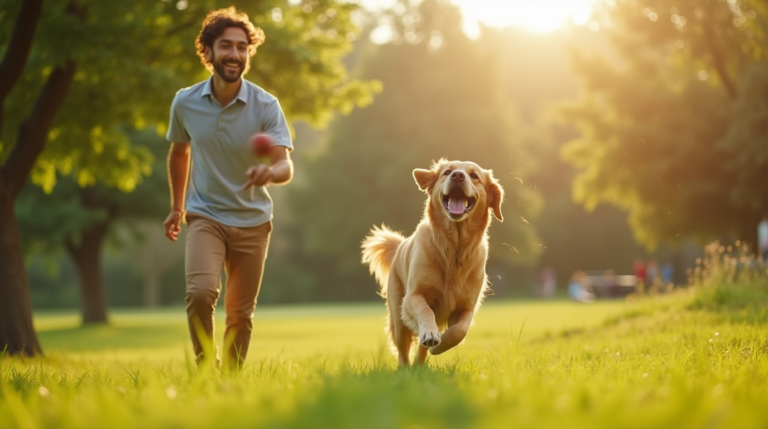As a proud bearded dragon parent, I know how vital it is to give them a balanced diet. Fruits can be a fun treat, but it’s key to know what’s best for these reptiles. Let’s explore if bearded dragons can safely enjoy grapes.
Bearded dragons are omnivores, needing both plants and animals in their diet. It’s important to find the right mix for their health. Fruits like grapes should only be a small part of their diet, with veggies and insects being the main food.
Table of Contents
Introduction to Bearded Dragon Diets
Bearded dragons are fascinating creatures that need a mix of plant and animal foods to stay healthy. As a pet parent, knowing what they eat is key to their happiness and health.
Bearded Dragons: Omnivores with Diverse Dietary Needs
Bearded dragons eat a wide range of foods. This includes leafy greens, veggies, fruits, insects, and a bit of lean meat. The right mix of these foods changes as they grow and get older.
Plant-Based Foods in Bearded Dragon Diets
- Leafy greens, like kale and collard greens, are full of vitamins and fiber.
- Vegetables, like bell peppers and carrots, are good for their health and digestion.
- Fruits, like berries, are treats that add hydration and natural sugars.
Animal-Based Foods in Bearded Dragon Diets
- Insects, like crickets, are a main source of protein and nutrients.
- Occasionally, a bit of cooked chicken or turkey can be added to their diet.
- Commercial pellets are also an option, but a homemade diet is better.
By giving your bearded dragon a variety of foods, you help them get the nutrients they need to be their best.
Nutritional Composition of Grapes
Grapes are a favorite fruit that can be good for bearded dragons in small amounts. They are low in calories but full of water, helping your pet stay hydrated. Grapes also have important vitamins and minerals that can help your dragon’s health.
Grapes are packed with Vitamin C, which boosts the immune system. They also have Vitamin K for blood clotting and healthy bones. Plus, grapes have potassium, which helps muscles and keeps fluids balanced.
But, grapes have a lot of natural sugars like glucose and fructose. These sugars give quick energy, good for young dragons. Yet, eating too many can cause obesity and dental issues. Grapes also have oxalates, which can affect calcium absorption in some reptiles.
| Nutrient | Amount per 100g of Grapes |
|---|---|
| Calories | 69 |
| Carbohydrates | 18g |
| Fiber | 0.9g |
| Sugar | 16g |
| Vitamin C | 10mg |
Adding grapes to your dragon’s diet should be done carefully. Know the good and bad of grapes to keep your pet healthy and happy.
Potential Benefits of Grapes for Bearded Dragons
Grapes can be a good treat for your bearded dragon, but only in small amounts. They can add to your pet’s health in several ways.
Hydration
Grapes are full of water, making them great for keeping your bearded dragon hydrated. This is especially true when it’s hot and dry outside. Staying hydrated is key to your dragon’s health and avoiding dehydration.
Antioxidants
Grapes are packed with antioxidants. These help boost your bearded dragon’s immune system and protect their cells. This can help keep your pet healthy and fight off sicknesses better.
Natural Sugars
The natural sugars in grapes give your bearded dragon a quick energy boost. This is especially good for younger dragons that need lots of energy to grow. But, it’s important to only give grapes in small amounts to avoid sugar problems.
While grapes can be good for hydration, antioxidants, and energy, they should be given carefully. Make sure to introduce them slowly and in small amounts. Always talk to your vet to make sure your dragon is getting the right food.
Risks and Considerations of Feeding Grapes to Bearded Dragons
Feeding grapes to bearded dragons can have both good and bad sides. The high sugar in grapes can cause weight gain and health problems if eaten too much. Bearded dragons can get metabolic bone disease from grapes’ bad calcium-to-phosphorus ratio.
Grapes can also be a choking hazard for bearded dragons. Their size and shape make it hard for these reptiles to swallow. To avoid this, cut grapes into small pieces before giving them to your bearded dragon.
Individual Variations
Every bearded dragon is different when it comes to food. Some can handle grapes just fine, while others might get sick. Watch how your pet reacts to grapes to keep them healthy.
| Potential Risks of Feeding Grapes to Bearded Dragons | Recommendations |
|---|---|
| High sugar content leading to weight gain and metabolic issues | Grapes should make up no more than 5-10% of a bearded dragon’s diet, about 1-2 grapes once or twice a week. |
| Choking hazard due to size and shape | Cut grapes into small pieces before feeding to prevent choking. |
| Individual variations in tolerance and sensitivity | Monitor your bearded dragon’s reaction when introducing grapes to their diet. |
Knowing the risks of grapes for bearded dragons helps you make better choices for their health. Always introduce new foods slowly and in small amounts as part of a balanced diet.
Can bearded dragons eat grapes?
Bearded dragons can have grapes as a treat now and then. But, it’s key to not overdo it. Grapes have good nutrients but too much sugar can harm these lizards.
Feeding grapes to bearded dragons means watching out for sugar. Grapes have a lot of natural sugars, which can cause obesity and metabolic issues in bearded dragons. So, grapes should be a rare snack, not a daily food.
- Grapes should not be a staple food in a bearded dragon’s diet due to their high sugar content.
- Offer grapes as an occasional treat, alongside a variety of other fruits and vegetables.
- Ensure the grapes are fresh, ripe, and free from pesticides for optimal health.
- Rotate fruits regularly in a bearded dragon’s diet to prevent nutritional deficiencies.
Grapes can add hydration and antioxidants to a bearded dragon’s diet. But, remember, these lizards need a balanced diet. They should eat a mix of plants and animals for their health.
By giving grapes in small amounts and as part of a varied diet, you can keep your bearded dragon happy and healthy. Always talk to a vet or reptile expert if you have diet or health questions.
Preparing Grapes for Bearded Dragons
If you want to give grapes to your bearded dragon, make sure to prepare them right. Grapes can be a tasty and healthy snack for your pet. But, they need some prep to avoid any risks.
Start by thoroughly washing the grapes. This removes dirt, pesticides, and other harmful stuff. It’s key to keep your dragon’s food clean and safe.
Then, cut the grapes into small, bite-sized pieces. Bearded dragons have small mouths. Whole grapes could be a choking hazard. Cutting them down makes it safer for your dragon.
Lastly, remove any seeds from the grapes. Grape seeds can be harmful. It’s better to be safe and take them out.
By doing these steps, you can safely prepare grapes for your bearded dragon. They’ll get a tasty and healthy treat as part of their diet.
Remember, moderation is key when feeding grapes to your bearded dragon. Grapes should be a rare treat, not a main part of their diet. Talk to your vet to find out the right amount and how often to give them.
Moderation and Portion Control
Feeding grapes to your bearded dragon should be done with care. Grapes should be a rare treat, not a main part of their diet. Give them one or two small grapes, no more than once or twice a week.
Bearded dragons need a mix of insects, veggies, and a bit of fruit. Grapes have good stuff like antioxidants and natural sugars. But, they’re also high in sugar. Too many grapes can cause obesity, stomach problems, and mess up their bones.
Every bearded dragon is different. Some might not like grapes much, while others can handle them better. Watch how your pet reacts and adjust the amount of grapes they get. If you’re worried, talk to a vet who knows about reptiles.
Feeding grapes in moderation is safe. It lets you give them a treat while keeping their diet balanced. Always think about your bearded dragon’s needs and talk to a vet for advice.

| Nutrient | Amount per 100g |
|---|---|
| Calories | 67 |
| Carbohydrates | 17.2g |
| Sugars | 16g |
| Fiber | 0.9g |
| Vitamin C | 3.2mg |
| Vitamin K | 3.3μg |
| Calcium | 10mg |
| Potassium | 191mg |
Grapes have a lot of sugar, 16g per 100g. They’re good for some nutrients, but give them to your bearded dragon in small amounts. This helps avoid health problems.
Offering Grapes as Part of a Balanced Diet
Grapes can be a tasty and nutritious treat for your bearded dragon. But, they should only be a small part of their diet. Most of their food should be leafy greens, vegetables, and insects.
Bearded dragons need both plant and animal foods to stay healthy. Experts say live insects should be 70% of their diet. Vegetables should be 20-30%, and fruits like grapes should be just 5%.
Feeding a variety of foods helps your bearded dragon get all the nutrients they need. This supports their immune system, skin, bones, and overall health.
Incorporating Grapes Safely
- Offer grapes in moderation, as part of a varied diet that includes a variety of vegetables and appropriate protein sources.
- Wash grapes thoroughly to remove any pesticides or contaminants before offering them to your bearded dragon.
- Cut grapes into small, bite-sized pieces to prevent choking hazards.
- Monitor your bearded dragon’s response to grapes and discontinue if any signs of digestive upset or other health issues arise.
By following these guidelines, you can give your bearded dragon a tasty and nutritious treat. This supports their health and well-being.
Alternatives to Grapes in Bearded Dragon Diets
While grapes are tasty for bearded dragons, many other fruits and veggies offer great nutrition. As omnivores, they need a mix of plant and animal foods. This mix ensures they get all the vitamins, minerals, and nutrients they need to stay healthy.
Some better choices than grapes include:
- Apples
- Strawberries
- Blueberries
- Mangoes
- Collard greens
- Mustard greens
- Squash
These options give your bearded dragon a variety of vitamins, minerals, and fiber. For example, collard and mustard greens are full of calcium. This is key for strong bones and teeth.
| Fruit/Vegetable | Nutritional Benefits for Bearded Dragons |
|---|---|
| Apples | Rich in fiber, vitamins, and antioxidants |
| Strawberries | High in vitamin C, manganese, and folate |
| Blueberries | Packed with antioxidants and low in sugar |
| Mangoes | Provide vitamins A, C, and B6, as well as fiber |
| Collard Greens | Excellent source of calcium and other minerals |
| Mustard Greens | High in vitamins A, C, and K, plus calcium |
| Squash | Offers vitamins A and C, as well as fiber |
Introduce new foods slowly and in small amounts. This helps your bearded dragon’s digestive system adjust. Remember, other fruits and vegetables for bearded dragons should be a small part of their diet. Most of their food should be leafy greens and protein-rich insects.

By offering a variety of healthy treats for bearded dragons besides grapes, you ensure they get the nutrients they need. This helps them stay healthy and live a long life.
Signs of Grape Intolerance in Bearded Dragons
Some bearded dragons might not like grapes. They could have trouble breathing, like gasping or flaring nostrils. If your bearded dragon acts upset after eating grapes, get vet help fast. This could be very serious.
Bearded dragons might get sick to their stomachs or have diarrhea if they don’t like grapes. They might also feel very tired or not want to eat. Watch your pet closely and stop giving grapes if they act sick.
It’s safer to not give grapes to your bearded dragon if they might be allergic. Give them a diet full of insects, greens, and safe veggies. This keeps them healthy and happy.
FAQ
Can bearded dragons eat grapes?
What are the potential benefits of feeding grapes to bearded dragons?
What are the risks and considerations of feeding grapes to bearded dragons?
How should grapes be prepared for bearded dragons?
How much and how often should grapes be fed to bearded dragons?
What are some healthier alternatives to grapes for bearded dragons?
What are the signs of grape intolerance in bearded dragons?
Source Links
- Can Bearded Dragons Eat Grapes? – https://www.petmd.com/reptile/can-bearded-dragons-eat-grapes
- Can Bearded Dragons Eat Grapes? – https://www.reptileexpert.co.uk/can-bearded-dragons-eat-grapes.html
- Beardie Approved: The Top 10 Fruits Your Reptile Will Love – https://beardeddragon.medium.com/beardie-approved-the-top-10-fruits-your-reptile-will-love-eb1612f3d795
- Can Bearded Dragons Eat Grapes? + 6 Other Foods – – https://beardeddragoncare.blog/can-bearded-dragons-eat-grapes-6-other/
- Can Bearded Dragons Eat Grapes? Risks & Benefits: – https://wildanim.com/can-bearded-dragons-eat-grapes/
- Can Bearded Dragons Eat Grapes? – Your Reptile Feeding Guide – https://customcreative.store/2023/11/27/can-bearded-dragons-eat-grapes/
- Can a Bearded Dragon Eat Grapes? – https://dragonsbeing.com/can-a-bearded-dragon-eat-grapes/
- Can Bearded Dragons Eat Grapes? – Frog Family Reptile – https://www.frogfamilyreptile.com/bearded-dragon/can-bearded-dragons-eat-grapes/
- Can Bearded Dragons Eat Bananas? Understanding the Pros and Cons – https://customcreative.store/2023/12/30/can-bearded-dragons-eat-bananas/
- Can Bearded Dragons Eat Bananas? Peeling Back the Facts – WhatAboutPets – Everything About Pets – https://whataboutpets.com/blogs/exotic-pets/can-bearded-dragons-eat-bananas-peeling-back-the-facts
- Can Bearded Dragons Eat Grapes? 3 Surprising Risks and Benefits – Pets River – https://petsriver.com/can-bearded-dragons-eat-grapes/
- Can bearded dragons eat apples? – https://www.reptileexpert.co.uk/can-bearded-dragons-eat-apples.html
- Can Bearded Dragons Eat Green grapes? Expert Opinion: Updated in 2024 with Latest Insights: – Reptile Fandom – https://reptilefandom.com/can-bearded-dragons-eat-green-grapes-expert-opinion-updated-in-2024-with-latest-insights/
- Untitled document – https://petsontheshorevh.com/storage/app/media/Reptiles/bearded-dragon-care-sheet-pdf.pdf
- Can Bearded Dragon Eat Grapes? – https://canbeardeddragoneat.com/can-bearded-dragon-eat-grapes/
- What Fruits Can Bearded Dragons Eat? – https://totalreptiles.com/bearded-dragon/what-fruits-can-bearded-dragons-eat/
- Can Bearded Dragons Eat Grapes? – AigleComment – https://aiglecomment.com/en/can-bearded-dragons-eat-grapes/
- Can Bearded Dragons Eat Cantaloupe? A Detailed Guide – Berry Patch Farms – https://www.berrypatchfarms.net/can-bearded-dragons-have-cantaloupe/
- Can Bearded Dragons Eat Apples? – Frog Family Reptile – https://www.frogfamilyreptile.com/bearded-dragon/can-bearded-dragons-eat-apples/
- Can Bearded Dragons Eat Coconut? – The Ultimate Guide 2024! – https://www.reptileguided.com/can-bearded-dragons-eat-coconut/
- Can Bearded Dragons Eat Green Beans: Safe Veggie or Risky Treat? – Frog Family Reptile – https://www.frogfamilyreptile.com/bearded-dragon/can-bearded-dragons-eat-green-beans/
- What Do Bearded Dragons Eat? – https://www.petmd.com/reptile/nutrition/what-do-bearded-dragons-eat
- Can Chameleons Eat Fruit & Vegetables? – https://dragonsdiet.com/blogs/chameleon-care/can-chameleons-eat-fruit-vegetables
- Bearded Dragon Food List: Essential Diet Guide for Healthy Pets – Frog Family Reptile – https://www.frogfamilyreptile.com/bearded-dragon/bearded-dragon-food-list/
- Caring for Bearded Dragons | All Animals Veterinary Hospital – https://www.allanimalsvet.com/caring-for-bearded-dragons/
- Can Bearded Dragons Eat Oranges – Health Risks Explained! – https://www.reptileguided.com/can-bearded-dragons-eat-oranges/
- Blog – https://www.cambridgestreetanimalhospital.com/blog.html
- Blog – https://www.concordanimalhospital.com/blog








1 thought on “Can bearded dragons eat grapes?”
Comments are closed.